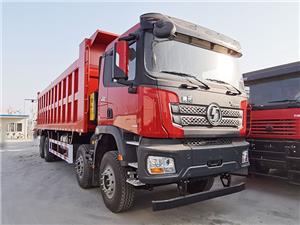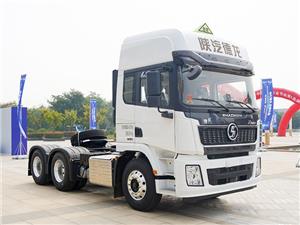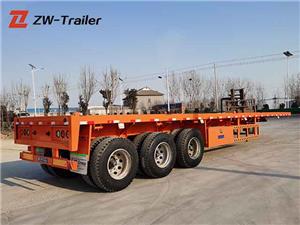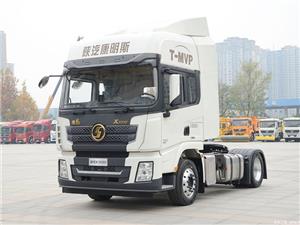Flatbed Trailer Buying Guide: What You Need to Know Before Shipping to Saudi Arabia
Flatbed Semi Trailer Buying Guide: What You Need to Know Before Shipping to Saudi Arabia
Purchasing a flatbed semi-trailer is a significant investment, and when your operations involve shipping to Saudi Arabia, there are unique considerations that can impact everything from compliance to efficiency. This guide will walk you through the essential factors you need to know to make an informed decision.
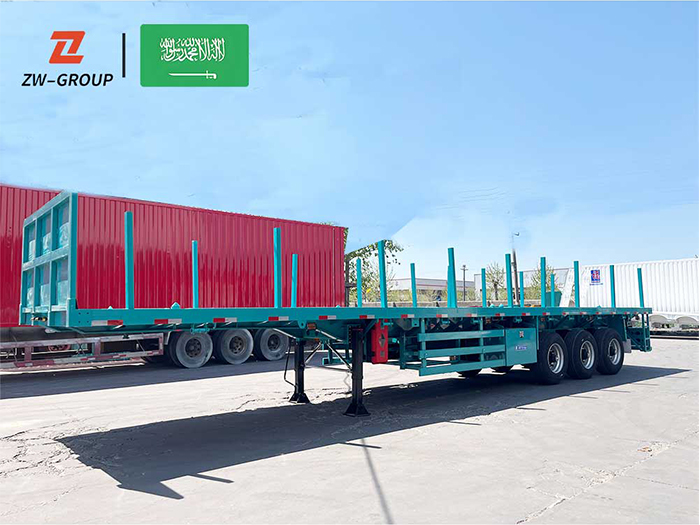
1. Understanding Saudi Arabian Regulations and Standards
Saudi Arabia has specific regulations governing vehicle imports and road usage. Non-compliance can lead to severe penalties, delays, and additional costs.
Vehicle Import Regulations:
Age Restrictions: Saudi Arabia often imposes age restrictions on imported vehicles. While this primarily targets passenger cars, it's crucial to verify if any similar restrictions apply to semi-trailers. Generally, newer trailers are preferred and easier to import.
Customs Duties and Taxes: Be prepared for import duties and Value Added Tax (VAT) which are levied on imported goods. These can significantly add to the overall cost. Research the current rates for commercial trailers.
Documentation: You will need a comprehensive set of documents, including the original bill of sale, certificate of origin, commercial invoice, packing list, and any required certifications (e.g., ISO, conformity certificates).
Technical Standards and Specifications:
Dimensions and Weight Limits: Saudi roads have specific maximum permissible dimensions (length, width, height) and weight limits (gross vehicle weight, axle loads). Ensure the flatbed trailer you choose complies with these to avoid fines and operational restrictions. Overweight or oversized loads require special permits, which can be costly and time-consuming to obtain.
Braking Systems: Ensure the braking system meets international standards and potentially specific Saudi Arabian requirements. ABS (Anti-lock Braking System) is generally a standard requirement.
Lighting and Reflectors: All lighting (taillights, brake lights, turn signals) and reflective markings must comply with local regulations for visibility and safety.
Tire Specifications: Tires should be suitable for the often harsh desert conditions, capable of handling high temperatures and varying road surfaces.
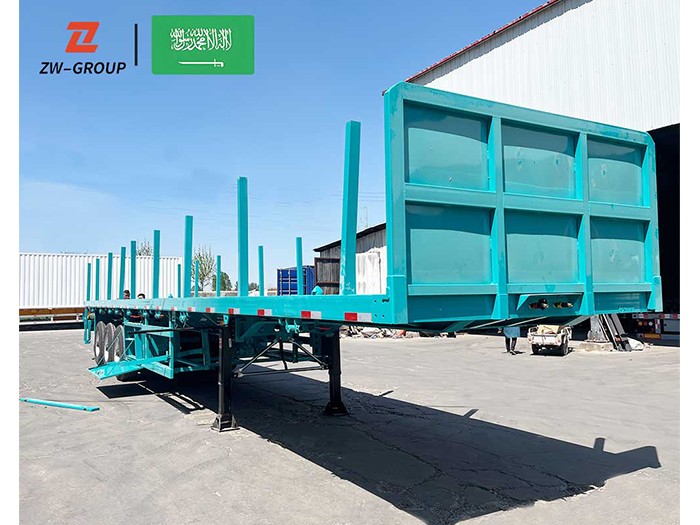
2. Flatbed Trailer Specifications for Saudi Arabian Conditions
The climate and infrastructure in Saudi Arabia demand specific features from your flatbed trailer.
Durability and Construction:
High-Strength Steel: Given the demanding conditions and potential for heavy loads, a trailer constructed from high-strength steel (e.g., Q345B, T700) will offer greater durability and longevity.
Corrosion Resistance: The coastal areas of Saudi Arabia can have high humidity, increasing the risk of corrosion. Consider trailers with enhanced paint systems, galvanization, or rust-resistant coatings.
Axle Configuration and Suspension:
Number of Axles: The number of axles (e.g., 2-axle, 3-axle) should align with the anticipated load weight and Saudi Arabian axle load regulations. More axles distribute weight better, reducing stress on the trailer and complying with limits.
Suspension Type: Air suspension is generally preferred for its ability to provide a smoother ride, protect sensitive cargo, and allow for ride height adjustment. Mechanical (spring) suspension is more robust for very heavy-duty applications but offers less cushioning.
Deck Type and Flooring:
Steel vs. Wood Decking: While wood decking is common, steel decking or a combination can be more durable and resistant to the elements in Saudi Arabia, especially considering potential for high temperatures.
Anti-Slip Features: Ensure the deck has anti-slip features to secure cargo effectively, particularly when dealing with varying weather conditions or emergency braking.
Kingpin and Landing Gear:
Kingpin Size: Verify the kingpin size (e.g., 2-inch or 3.5-inch) matches the fifth wheel on your tractor units.
Heavy-Duty Landing Gear: Robust landing gear is essential for stability during loading/unloading and when parked on uneven terrain.
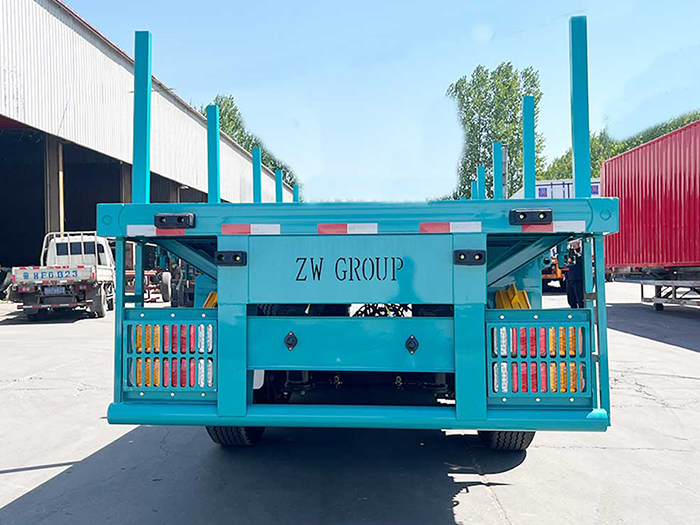
3. Sourcing and Logistics Considerations
The process of purchasing and shipping the trailer itself requires careful planning.
Reputable Manufacturers/Suppliers:
Experience with Middle East Markets: Prioritize manufacturers or suppliers with experience exporting to Saudi Arabia or the broader Middle East. They will be more familiar with the necessary documentation, shipping procedures, and regional preferences.
After-Sales Support and Parts: Ensure the supplier offers reliable after-sales support and has readily available spare parts in Saudi Arabia or through efficient international shipping. This is crucial for minimizing downtime.
Shipping and Freight:
Ro-Ro (Roll-on/Roll-off) vs. Container Shipping: Flatbed trailers are typically shipped via Ro-Ro vessels due to their size. Research the best shipping routes and reputable freight forwarders specializing in oversized cargo to Saudi Arabia.
Port of Entry: Major ports in Saudi Arabia include Jeddah Islamic Port on the Red Sea and King Abdulaziz Port in Dammam on the Arabian Gulf. Choose the port that is most geographically advantageous for your final destination.
Insurance: Comprehensive marine cargo insurance is essential to protect your investment during transit.
Customs Clearance and Local Agents:
Experienced Customs Broker: Engage a reputable customs broker in Saudi Arabia. Their expertise will be invaluable in navigating the complex customs clearance process, ensuring all documentation is correct, and expediting the release of your trailer.
Local Agent/Representative: Having a local agent or representative on the ground can significantly streamline the process, from dealing with port authorities to arranging inland transportation.
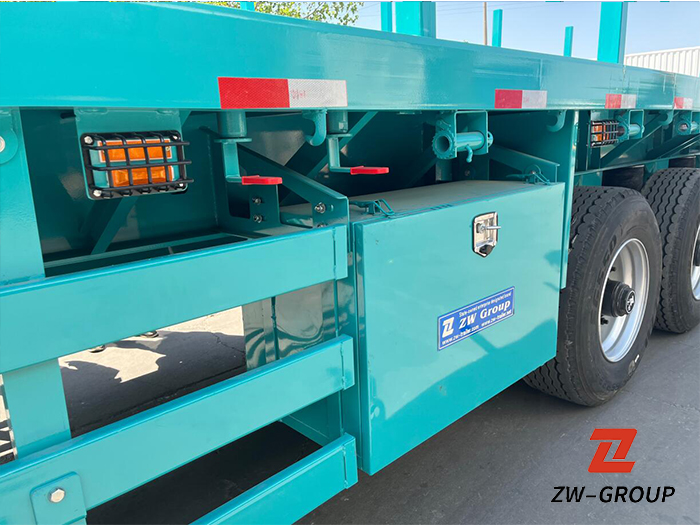
4. Financial and Operational Considerations
Budgeting: Factor in not just the purchase price but also:
Shipping costs
Import duties and VAT
Customs clearance fees
Insurance
Any necessary modifications or certifications for Saudi compliance
Initial maintenance and spare parts
Payload and Usage: Clearly define the types of cargo you will be transporting and the typical routes. This will help you determine the optimal length, width, and weight capacity of the flatbed.
Maintenance and Servicing:
Availability of Parts: Research the availability of common wear-and-tear parts (tires, brake components, suspension parts) in Saudi Arabia.
Service Network: If you are buying from a global brand, check if they have authorized service centers or partners in Saudi Arabia.
Resale Value: While not an immediate concern, a well-maintained trailer from a reputable brand that complies with Saudi standards will generally have a better resale value in the region.

